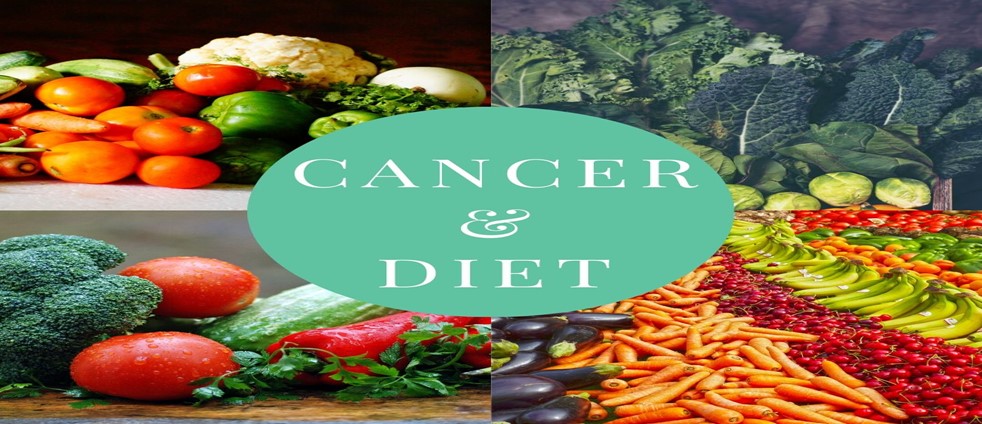Cancer accounts for approximately 13 percent of all deaths each year with the most common being lung, stomach, colorectal, liver, and breast cancer. Life style and dietary measures alone have been said to prevent an estimated 30-40 percent of all cancers. This makes diet second only to tobacco as a preventable risk factor for the development of cancer.
Cancer is a disease with risk factors that are multifaceted. Due to this multifactorial nature of the etiology of cancer, no single food can be said to protect one against cancer by itself. Rather, a holistic dietary approach is likely to be more beneficial. Various food substances have been found to contain elements which could play a role in either reducing or increasing the risk of developing cancer.
Here are 7 dietary suggestions related to cancer risks:
1. Avoid high intake of foods containing saturated fats
Strong correlations have been established between the high intake of saturated fats and the incidence of different types of cancer such as breast, colon and prostate cancers. Foods rich in these saturated fats include red meat, animal skin and intestines, whole milk, butter, palm oil, coconut oil.
The aim is not to eliminate saturated fats from the diet completely. Limiting their intake however will be beneficial in the reduction of risk of cancer development. Also, it is advised that most fat intake should be unsaturated fats like olive oil, groundnut oil, soya oil, nuts such as walnuts.
2. Reduce intake of salted preserved foods
Substantial evidence suggests that risk of stomach cancer is increased by high intake of some traditionally preserved salted foods such as pickled vegetables, sausages preserved in brine, dried salted fish, bacon. These food products should not be ingested in high amounts.
3. Avoid eating foods cooked at very high temperature
During the cooking of some food substances such as meat at very high temperatures, some harmful compounds can be formed. These compounds can in turn contribute to inflammation in the colon and may play a role in the development of cancer.
4. Increase intake of diet rich in fiber
Soluble fibers are present in some fruits and vegetables and in certain grains such as oats and barley, nuts, beans, lentils, peas. This type of fiber undergoes changes in the large intestine. These changes cause its conversion to products that can reduce the risk of colon cancer.
Insoluble fibers in are found in wheat bran, barley, brown rice, whole grain cereals. They reduce the risk of developing colon cancer.
5. Avoid high dietary intake of dairy products
Some studies have suggested that risk of prostate cancer and ovarian cancer is increased by high intake of dairy products such as whole milk, butter, cheese made from whole milk. Instead dairy products like skimmed milk, low fat yoghurt, cheese made from low fat milk such as Cottage and Ricotta cheese.
6. Ensure adequate intake of foods rich in vitamins and minerals
Vitamin A, E, and trace minerals have been found to be involved in the prevention of cancer. It is found that a low-density intake of phosphorus increases the blood levels of vitamin D. This in turn results in a reduction in the risk of prostate cancer development in ageing men.
7. Include sufficient folate containing foods in your diet
Some studies have suggested that a diet low in folate is associated with an increased risk of colon cancer. A reduced amount of folate in the body may contribute to the cancer process.
8. Reduce intake of ultra-processed food to the barest minimum
Reducing and worse still, completely eliminating the intake of processed foods may seem like a herculean task. However, ultra-processed foods possess several characteristics that may be involved in the disease process of cancer. Some of these characteristics include possessing a higher content of total fat, saturate fat, added sugar and salt, a lower fiber and vitamin content.
Also processed food products that are heat-treated may possess carcinogenic proprieties. Some ultra-processed foods contain food additives which have been suggested to exhibit carcinogenic characteristics. The packaging of ultra-processed foods may contain some materials in contact with food for which carcinogenic properties have been suggested.
Some other suggestions that may help in the reduction of cancer risk include:
- Be physically active. Achieve and maintain a healthy weight. Be at least moderately active for up to 30 minutes on most days of the week.
- Limit the intake of alcoholic beverages. Drinking any kind of alcohol can contribute to various cancers such cancer of the mouth and throat, larynx (voice box), esophagus, colon, liver, and breast. It is recommended that if you drink alcohol at all, drink in moderation—no more than one drink a day for women, and no more than two drinks a day for men. If you don’t drink, don’t start drinking because of any possible health benefits.
- Quit smoking if you do. Also, don’t make use of tobacco in any form. Smoking has been found to be a contributing factor to various cancers such as liver, stomach, colon, bladder cancers. It is also important to avoid inhalation of second-hand smoke (smoke from the mouth of the smoker or from the butt end of the cigarette).
Feel free to reach out to us, should you have questions or nagging beliefs not addressed in this article. You can visit www.oncopadi.com for more information. Do not forget to drop your comments in the comment box or chat with us directly. We would love to hear from you.
Until the next time, Remember “You are what you eat” #StaySafe.
Loads of Love
xo xo
Oncopadi cares

